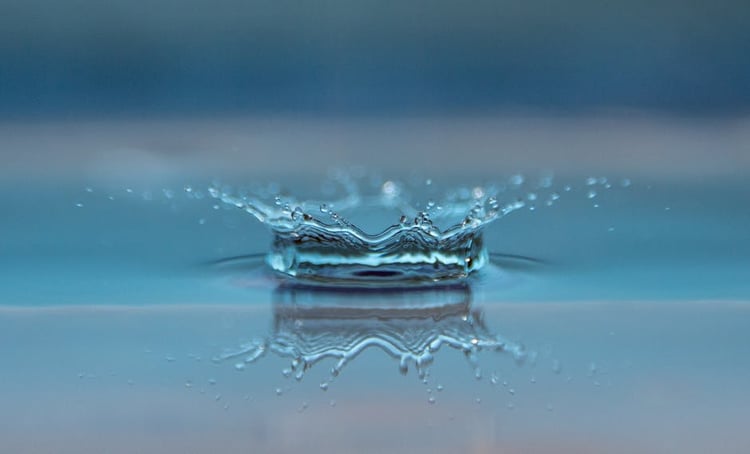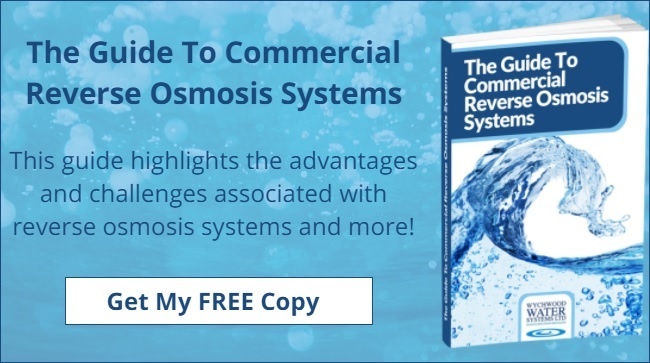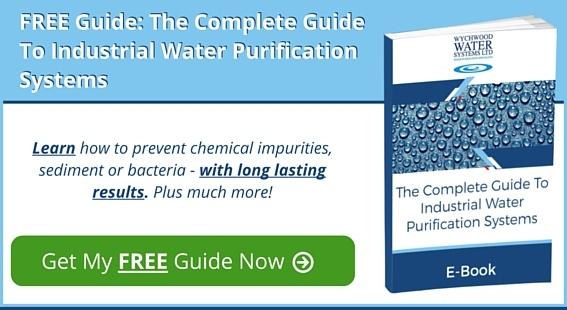
Deionisation is a process that’s been used in industrial water treatment for several decades. Effective for the removal of minerals, deionisation employs ion exchange to ensure the removal of contaminants. A positively-charged anion resin attracts the negative contaminant ions, whilst the negatively-charged cation resin removes the positively-charged contaminants.
Before choosing any water deionisation system for your facility, however, there are a few things to keep in mind.
1) Deionisation Alone May Not Be Enough
The ability of a water treatment system to remove contaminants is only as good as the quality of water which enters it. If your facility requires water that is free of organic impurities, viruses and bacteria, you will need to pre-treat your water with another process.
In many cases, reverse osmosis (RO) will be sufficient for pre-treatment. This is because RO removes some larger viruses, most bacteria and many organic compounds from water. Reverse osmosis pushes water at low speed in a cross-flow direction through semi-permeable membranes. These membranes trap contaminants on one side as pure water continues to travel to the other side.
2) Deionisation Requires Chemicals
The resins in deionisation systems are chemically charged prior to being used to treat water. Caustic soda and hydrochloric acid are the two chemicals typically used to accomplish this. For this reason, conventional deionisation is not recommended for facilities requiring completely pure water, such as those which produce pharmaceutical, medical, food or drink products.
3) Water Purity Relies On Regular Monitoring And Maintenance
In order to ensure your deionisation system continues to produce water at the required level of purity, regular maintenance will be crucial. The system’s resins will need to be removed, cleaned and recharged with the chemical solutions mentioned above. As well, the system will need to be checked regularly to ensure proper operation as well as resin bed health.
Any resins identified as being degraded or damaged will need to be replaced to ensure continued levels of desired water purity.
The regular maintenance of any other pre-treatment system will also need to take place. If using reverse osmosis, the resins will need to be checked to ensure they are still intact. If not, replacement will be necessary.
Bacterial Growth
Bacteria is a continual threat to industrial water purification systems of all kinds. This is because there are so many conditions and locations within a system where bacteria can grow and thrive, making regular monitoring an absolute must.
Any treatment system which is not used on a regular basis should be aggressively monitored for bacterial growth. When in use, the flow of water must be sufficient to prevent bacteria from adhering to the inside of system pipes and any crevices within and joints between them.
4) Regular Cleaning Is Vital
Cleaning is a critical part of industrial water treatment system maintenance. All cleaning and maintenance should be undertaken diligently and in a proactive manner. Detailed records should be kept about the frequency of cleaning, as well as which tasks were performed on which day and time, and by whom. This log should be located as near to the system as possible, so as to be easily accessible by maintenance staff. Log sheets should be simple to understand and easy to complete, as this will facilitate higher quality record-keeping.
Get More Information About Industrial Deionisation With This Free Guide
Making the right choice of deionisation system can be difficult, especially when you’re unsure about which system is right for your facility. Our team of experts at Wychwood have eliminated much of the guesswork by creating the Guide to Deionised Water Treatment Systems. The guide is available now as an instant download, and is absolutely free. Our team is also available to speak with you via email about the best deionisation systems. Simply email sales@wychwood-water.com










 We are a specialist independent company involved in water purification and water treatment technologies
We are a specialist independent company involved in water purification and water treatment technologies


